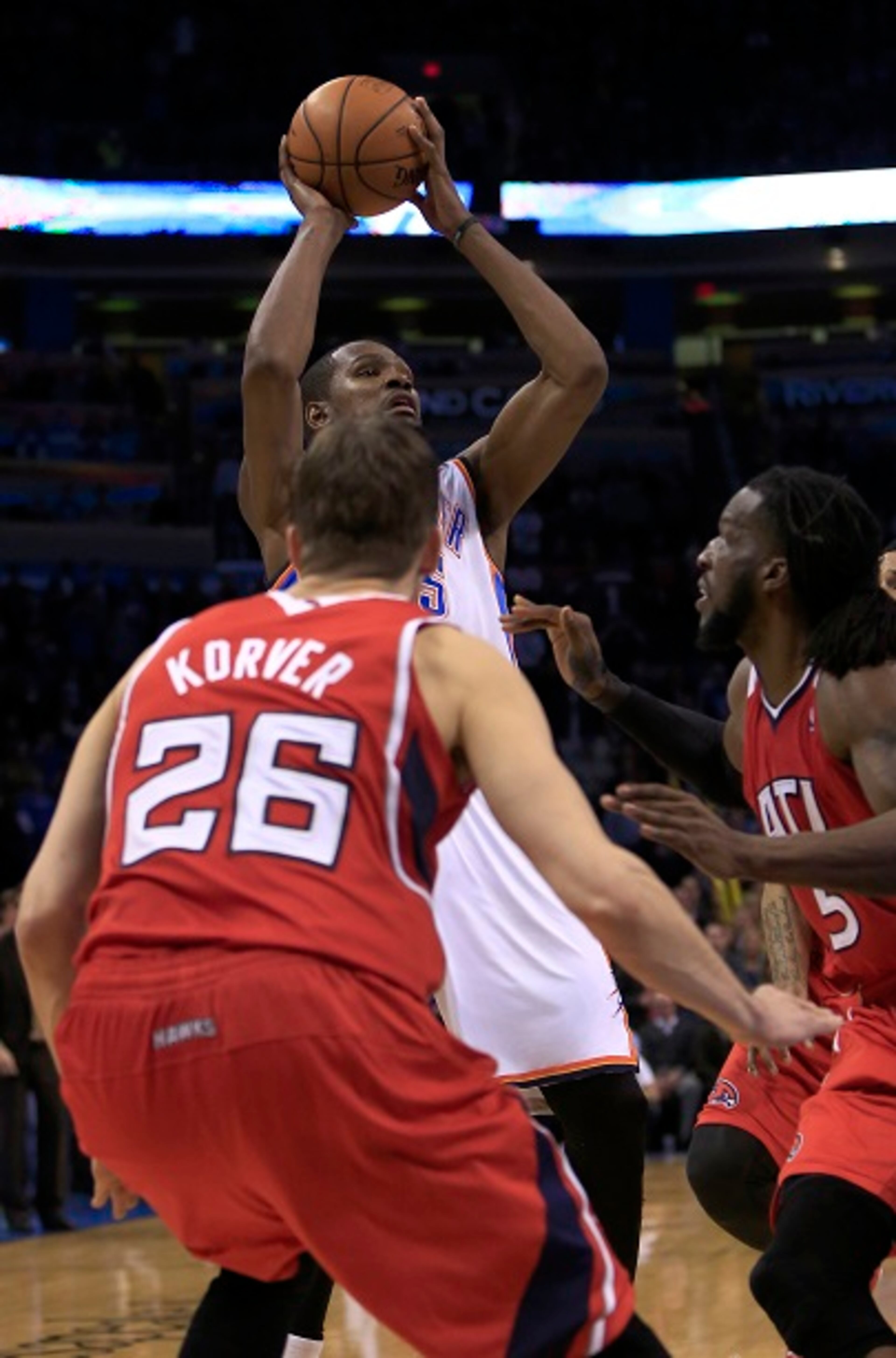When, if ever, will the Hawks find their Durant?

I have great admiration for what the Atlanta Hawks have done and are doing . They've become an organization that is expertly run and a team that is cleverly coached, and when last could we say as much? If there's a way to elevate this franchise to championship level, I now believe Danny Ferry and Mike Budenholzer will find it. That said ...
With the exception of the 2003-2004 Detroit Pistons, every NBA champion since 1980 has been built around a superstar, and in many cases two superstars. The Hawks don't have even one. And we reminded last night the difference one man can make in a game where teams play five a side.
One week after beating the Miami Heat and LeBron James, three nights after being blown out by San Antonio and Tim Duncan, the Hawks led Oklahoma City by 14 points in the second half and by seven with 5 1/2 minutes remaining. This, we remind you, was a Hawks team playing without two of its three best players (Al Horford, Jeff Teague) and without Horford's backup (Pero Antic). This was a team that's barely above .500 in the lousy NBA East facing the owner of the best record in the NBA West and doing it on the road, no less.
The Hawks were the better team nearly all game, and still they lost. They lost for the basic reason that the league's second-best player scored 16 of his 41 points in the fourth quarter and made two go-ahead baskets in the final 25 seconds. Paul Millsap, who has been unbelievably good since arriving from Utah, answered the first with an outrageous flip, but there wasn't time to offset the second.
The Hawks lost because OKC had Kevin Durant and they didn't, which brings us to the greater issue. To become a champion, they're going to need their Kevin Durant, but how do you get one of those? OKC drafted its when the franchise was based in Seattle. Miami signed LeBron away from Cleveland because it had the wherewithal to package him with Dwyane Wade, who was then one of the league's five best players, and Chris Bosh, who was among the top 20.
Rick Sund, Ferry's predecessor as general manager, would often say that teams don't trade for superstars -- they draft them. There was some thought that the Hawks might catch an unbelievable break and have Brooklyn flop so bad that it lands in the 2014 lottery and then wins the thing. (Owing to the Joe Johnson trade, the Hawks have the right to trade Round 1 picks with the Nets.) But Brooklyn has steadied and should make the playoffs, which would mean no lottery pick for the Hawks, no Andrew Wiggins or Jabari Parker or Joel Embiid.
Which would leave the Hawks where they've been since Ferry arrived -- trying to do things the right way but the hard way. I give this team full credit for remaking itself in the image of San Antonio, where Ferry and Budenholzer once worked, but the cold reality is that the Spurs wouldn't have become the model organization if the ping-pong balls hadn't bounced their way in 1997, the year Duncan left Wake Forest.
San Antonio got lucky. As much as I applaud the Hawks' diligence and expertise, I worry that diligence and expertise can take a franchise only so far. To become a champion, a team also has to get lucky. Let's hope that what Branch Rickey, a GM in a different sport, said holds true in hoops. Let's hope luck really is the residue of design.

